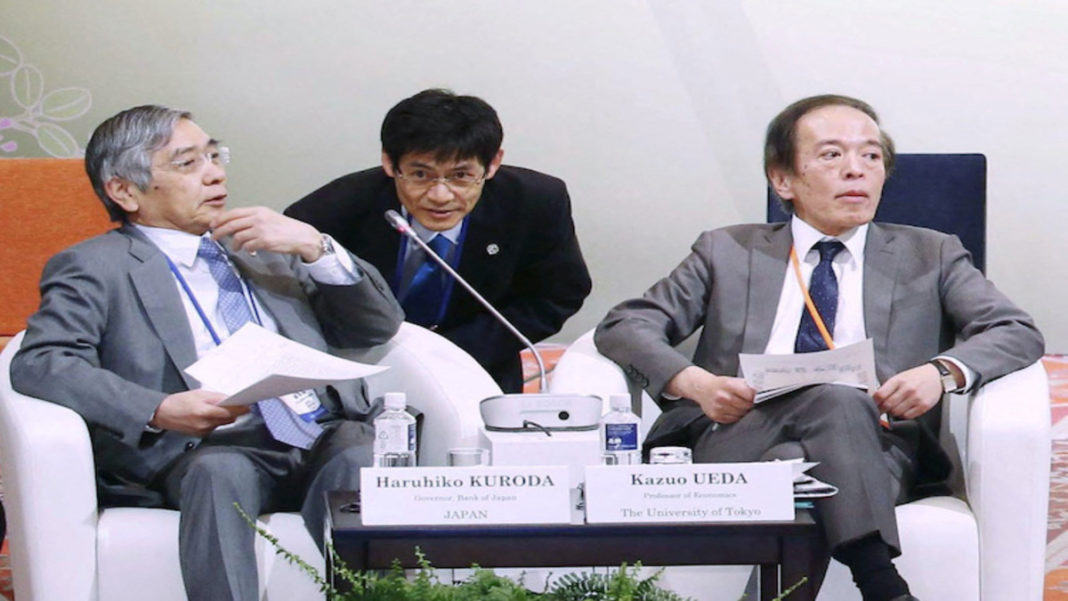JAPAN: Kazuo Ueda, the new governor of Japan’s central bank, faces a challenging road as weakening global growth clouds prospects for a sustained rise in inflation and wages, a requirement for phasing out his predecessor’s contentious monetary stimulus.
The 71-year-old academic took office on Sunday, following Haruhiko Kuroda, whose second five-year term concluded on Saturday. On Monday at 10:15 GMT, Ueda and his two deputy governors, Ryozo Himino and Shinichi Uchida, will conduct a joint press conference.
Markets will be watching for hints as to when Ueda will phase out an unpopular bond yield control programme that has come under fire for skewing markets and damaging bank profitability.
The head of the coalition partner of Prime Minister Fumio Kishida’s party expressed hope for Ueda to proceed cautiously with any shift in monetary policy, despite Kishida’s refusal to publicly make any such request.
“I hope the BOJ’s price target and economic growth can be achieved in a calm fashion rather than through abrupt changes,” said chief of the Komeito party Natsuo Yamaguchi on Monday when asked about Ueda.
During parliamentary confirmation hearings in February, Ueda underlined the importance of maintaining an ultra-easy policy in order to ensure that Japan stably meets the BOJ’s 2% inflation objective supported by wage growth.
However, many analysts anticipate the BOJ to modify or end yield curve control (YCC), a strategy that combines a 0.1% objective for short-term interest rates and a 0% cap for the yield on 10-year bonds, as soon as this quarter due to inflation exceeding the target.
“The increasing side effects are a sign the policy effect (of YCC) is working its way through the economy,” Hiroshi Nakaso, the former BOJ deputy governor, was reported as saying in an interview with the Nikkei newspaper.
“When the appropriate timing comes, the BOJ’s new leadership will likely modify or abolish the YCC,” he added.
Long-stagnant wage growth and inflation in Japan are beginning to alter. Core consumer inflation, which reached a 41-year high of 4.2% in January, is still above 3% as more businesses raise prices in response to rising raw material costs.
Major companies have proposed wage increases of over 4% this year in annual labour negotiations, the sharpest rate in about three decades, to make up for the rise in living expenses for households.
At his farewell press conference as governor on Friday, Kuroda stated that Japan was getting closer to maintaining 2% inflation as the public’s long-held belief that prices wouldn’t rise was starting to shift.
However, the export-dependent economy of Japan is facing challenges, including growing concerns about the U.S. recession. While the removal of COVID-19 limits is supporting consumption, some economists caution that recent price increases for basic goods may potentially have a negative impact on expenditure.
On April 27–28, Ueda will preside over his first policy meeting, during which the board will provide new quarterly growth and price predictions covering fiscal 2025.
Market attention is on whether the board expects inflation to increase and maybe reach 2% in the fiscal years 2024 and 2025.
The BOJ anticipates that core consumer inflation will reach 1.6% in the current fiscal year, which started in April, and then pick up to 1.8% the following year.
Ueda served as a member of the BOJ board from 1998 to 2005, a time when the central bank launched quantitative easing and zero interest rates to fight deflation and economic stagnation.
Also Read: Japan’s Ruling Party Wins in Elections Despite Criticism for Its Ties to Unification Church



